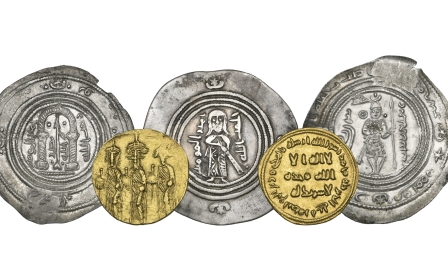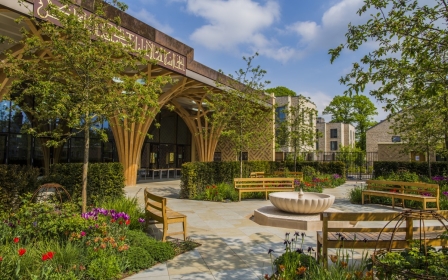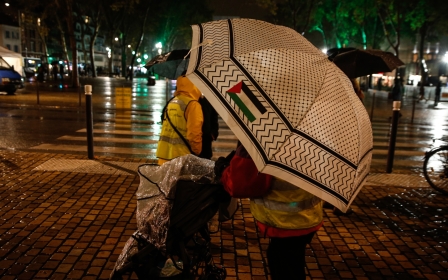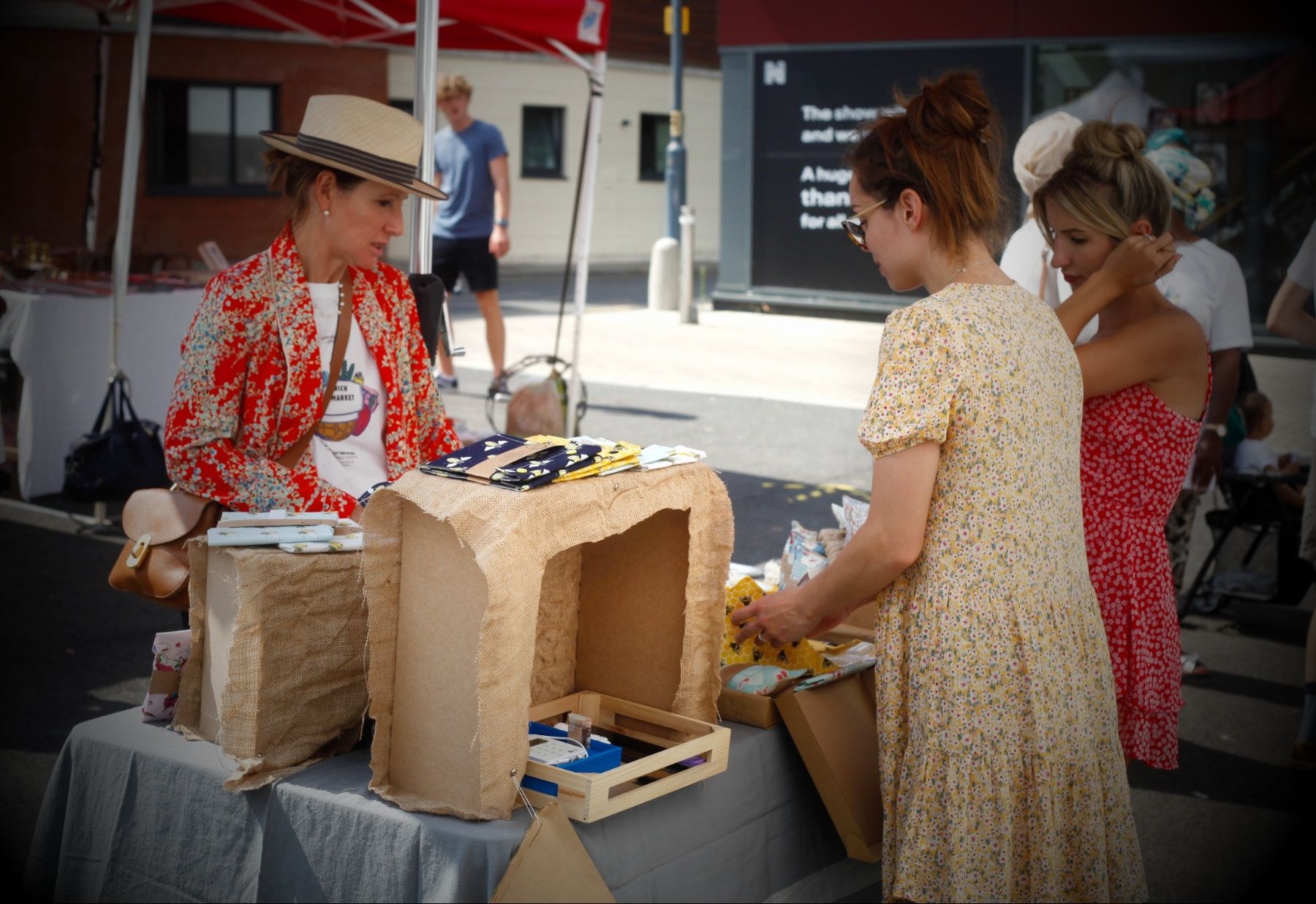
How a British market was inspired by the Islamic model of Medina
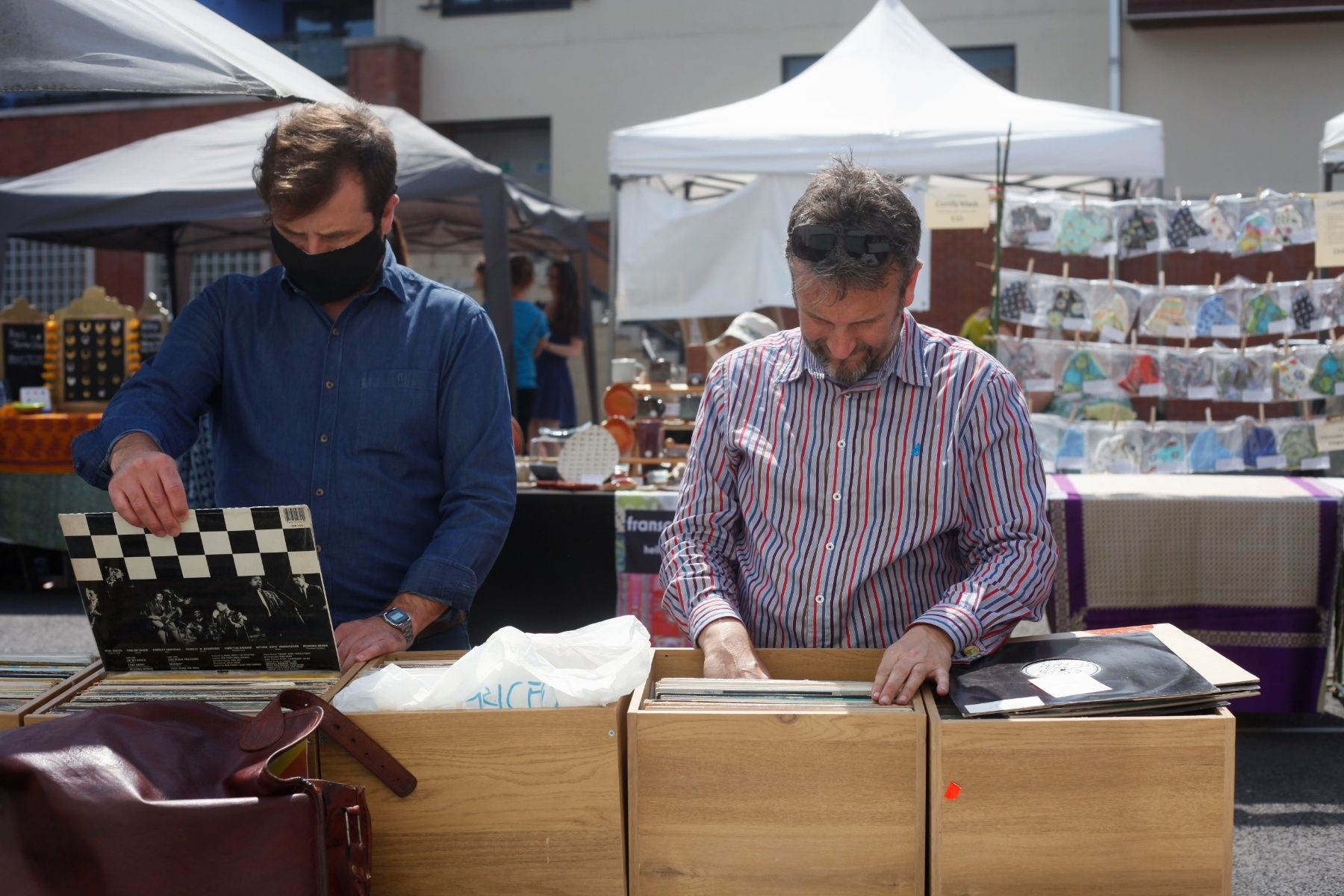
This summer saw the revival of an Islamic-based tradition of market trading in the British city of Norwich. Based on principles established by the early community at the time of the Prophet Muhammad, the new Norwich Free Market operates following a number of practices designed to encourage fair trading. (Photo credit: Tom Gowanlock)

In the early days of Islam, markets were "the lifeblood of the community" and the "first bastion of both social welfare and wealth creation", according to the Open Trade Network, a Norwich-based organisation supporting "access to trade and enterprise for all". Traders at the new market aren't taxed or charged rental, and undercutting is not permitted. (Photo credit: Tom Gowanlock)
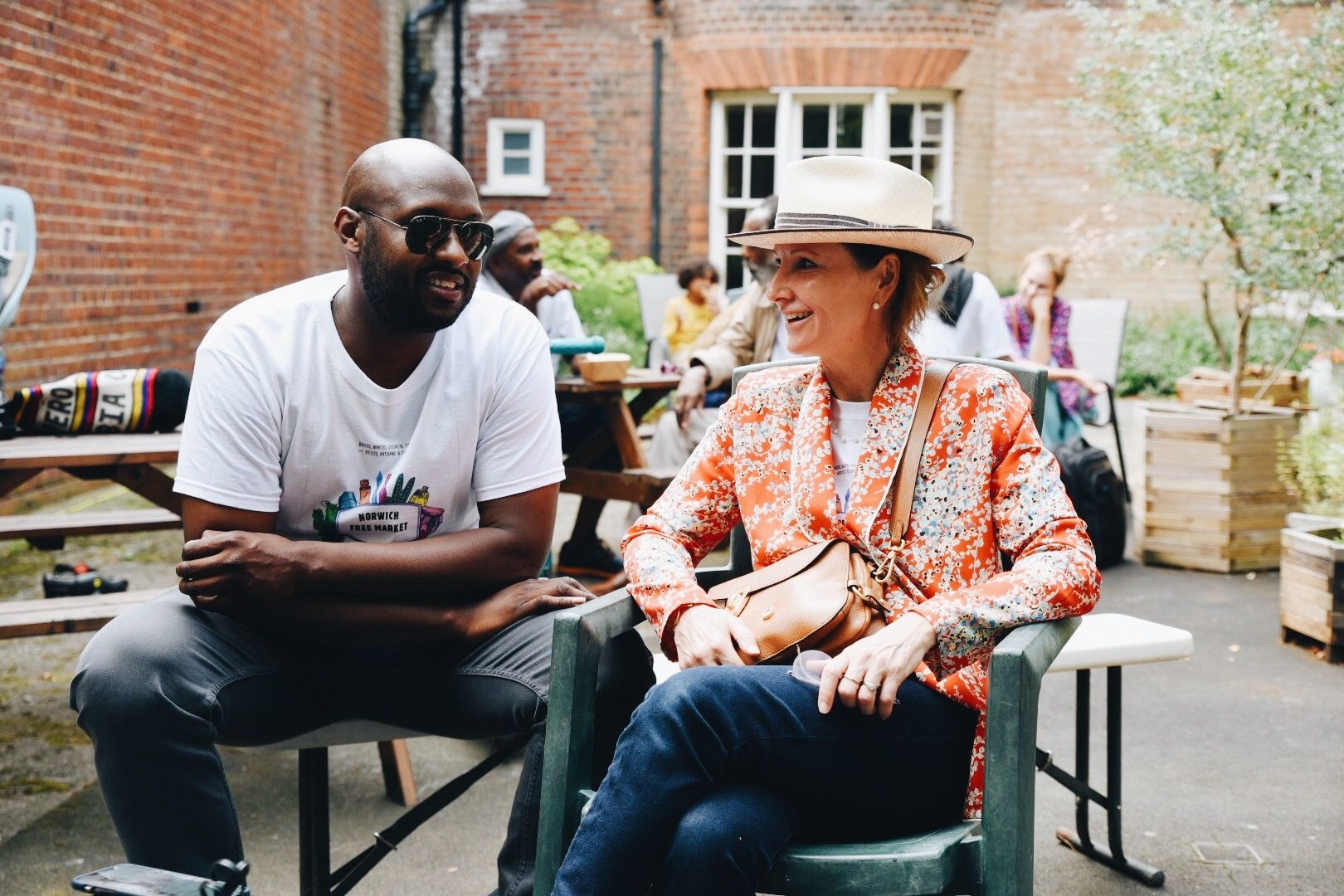
The initiative is a project of the Open Trade Network, in partnership with the local Ihsan mosque and Islamic Centre, and is driven by members of the local Muslim community, including Jamal Sealey (L) and Rahima Brandt (R).
The pair had worked together running a soup kitchen during Ramadan earlier this year and delivering to households self-isolating due to Covid-19. After a successful month, Brandt says they began thinking of what they could do next: "Feeding people on a continuous basis, really it's just like putting a finger in the dam. It's not going to stop anything, and it's not going to start anything." (Photo credit: Salsabil Morrison)
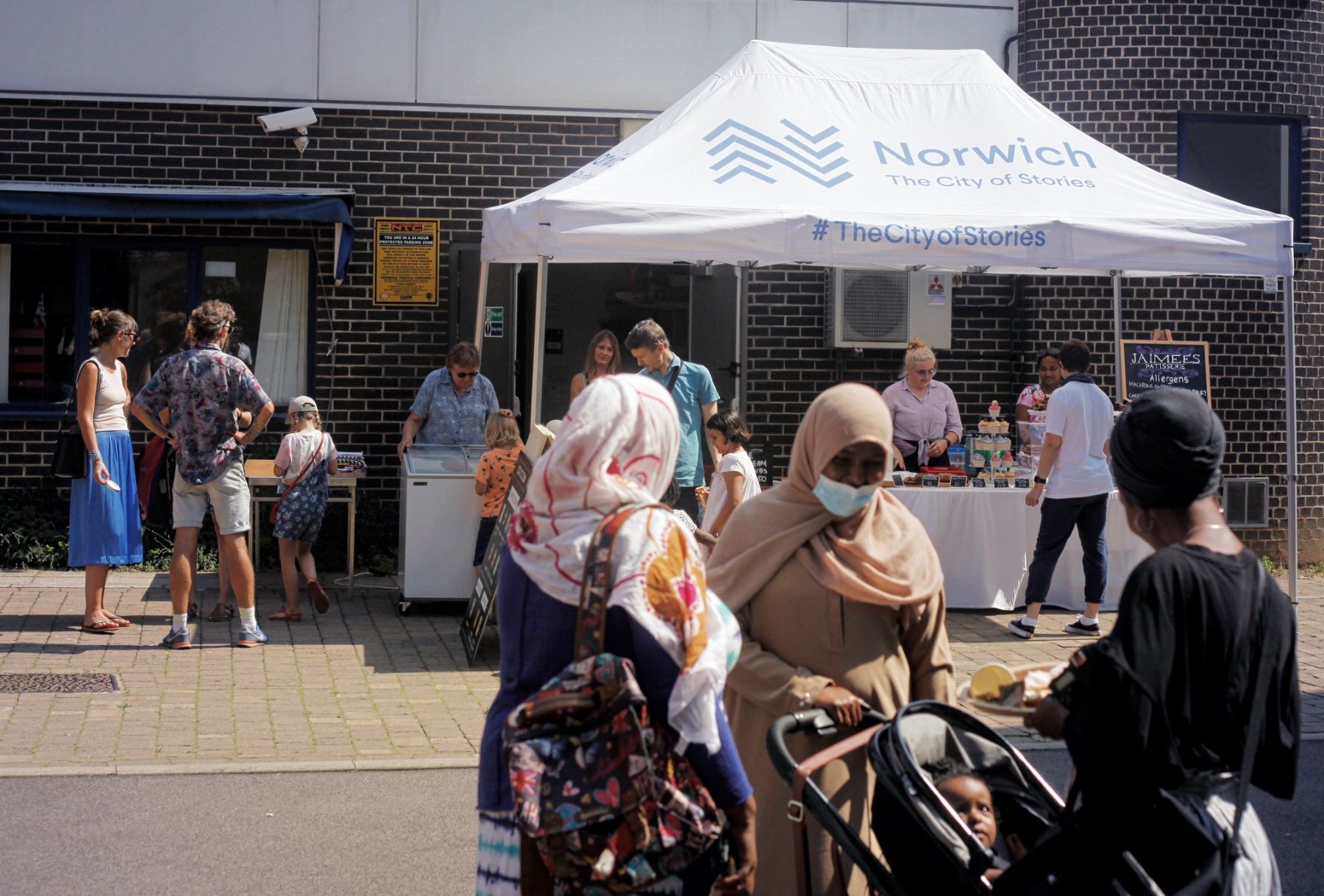
The idea of hosting a form of "community hub for traders, makers, bakers, artists, growers, street food vendors" had been a long time coming, Sealey says: "It's something that we were talking about for years, you know, having a large warehouse where people could trade for free and kind of takes the energy away from the supermarkets." (Photo credit: Tom Gowanlock)
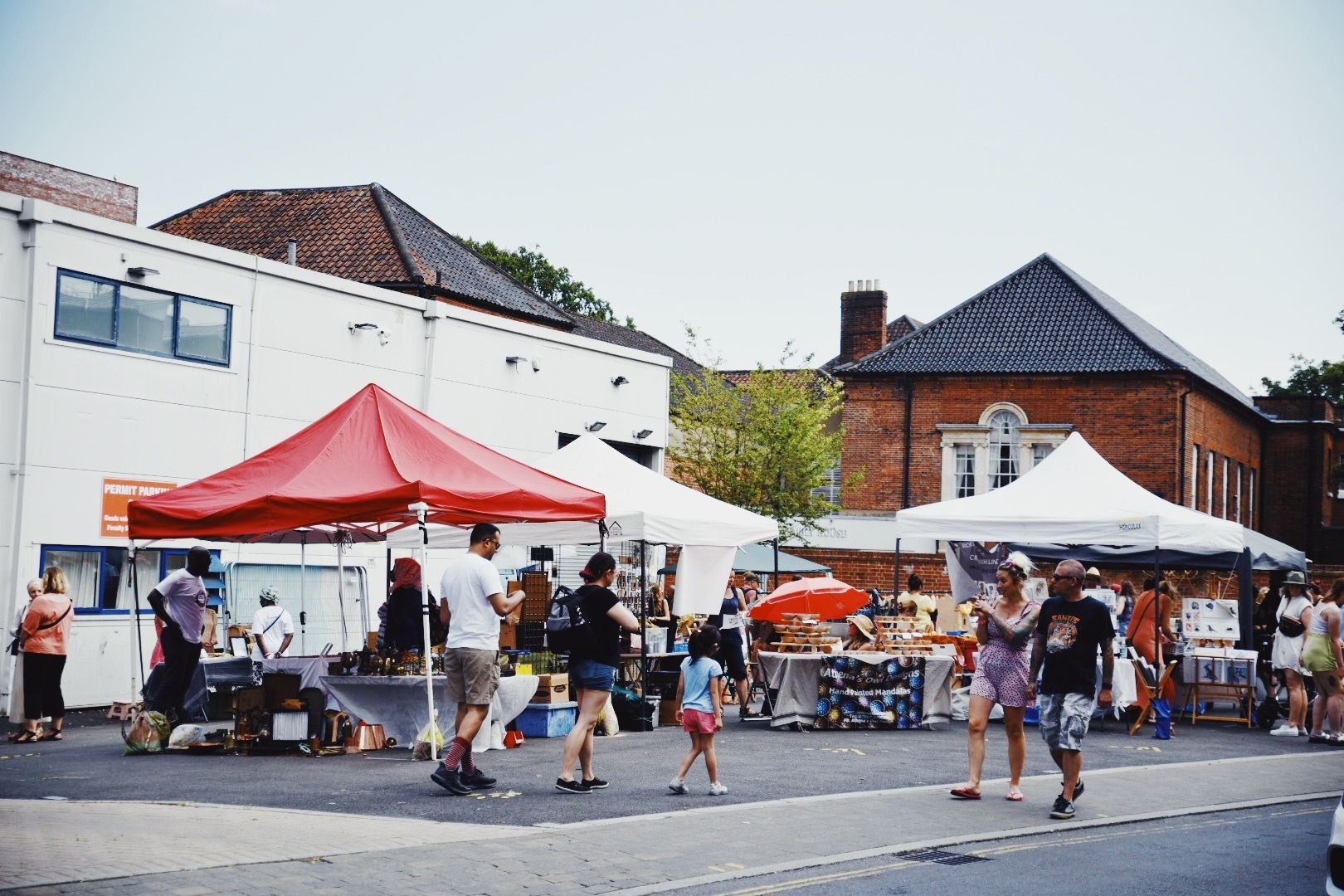
As Dr Asadullah Yate, professor of Arabic and Fiqh (Islamic Jurisprudence) at Weimar University, writes that in traditional Muslim communities, markets "were not a prelude to the establishment of fixed, structured shops, grocers, engrossers, wholesalers or 'supermarkets'. These latter only hoard and monopolise commodities in order to control and manipulate prices."
"We always thought that would be good for the community and for the everyday businessperson," Sealey says. "And I think with the whole Covid coming in now, it just seemed like now is the right time to try and make this happen." (Photo credit: Salsabil Morrison)
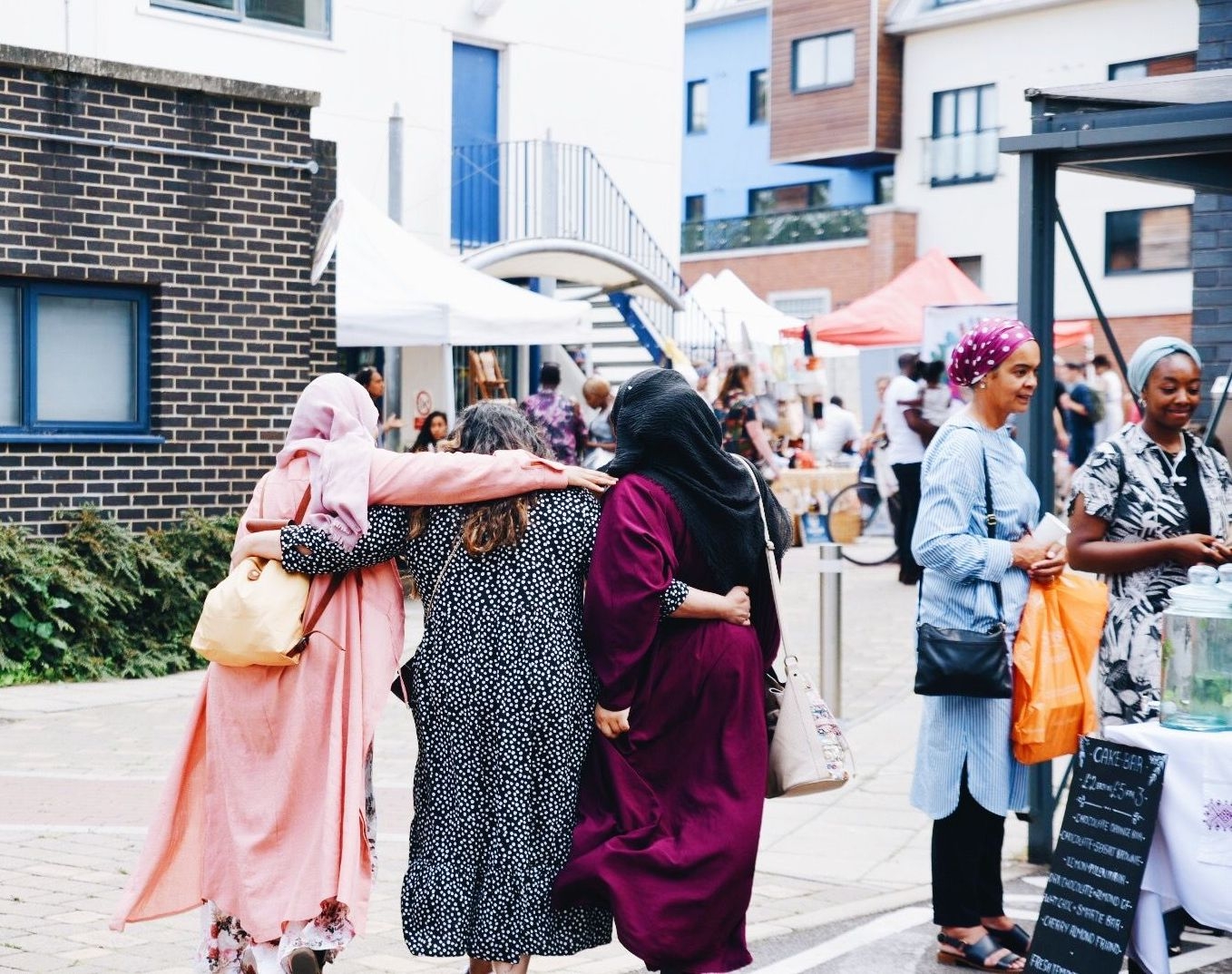
The city of Norwich already has a famous, traditional English market that dates back to the 11th century, with permanent stalls in the historic centre selling everything from fabric to food. But the new Norwich Free Market, running one day a month, is both an opportunity to support local business and a community-driven response to an urgent need for people affected by coronavirus. Some of the stalls are run by traders who set up small businesses after losing their jobs during lockdown. (Photo credit: Salsabil Morrison)
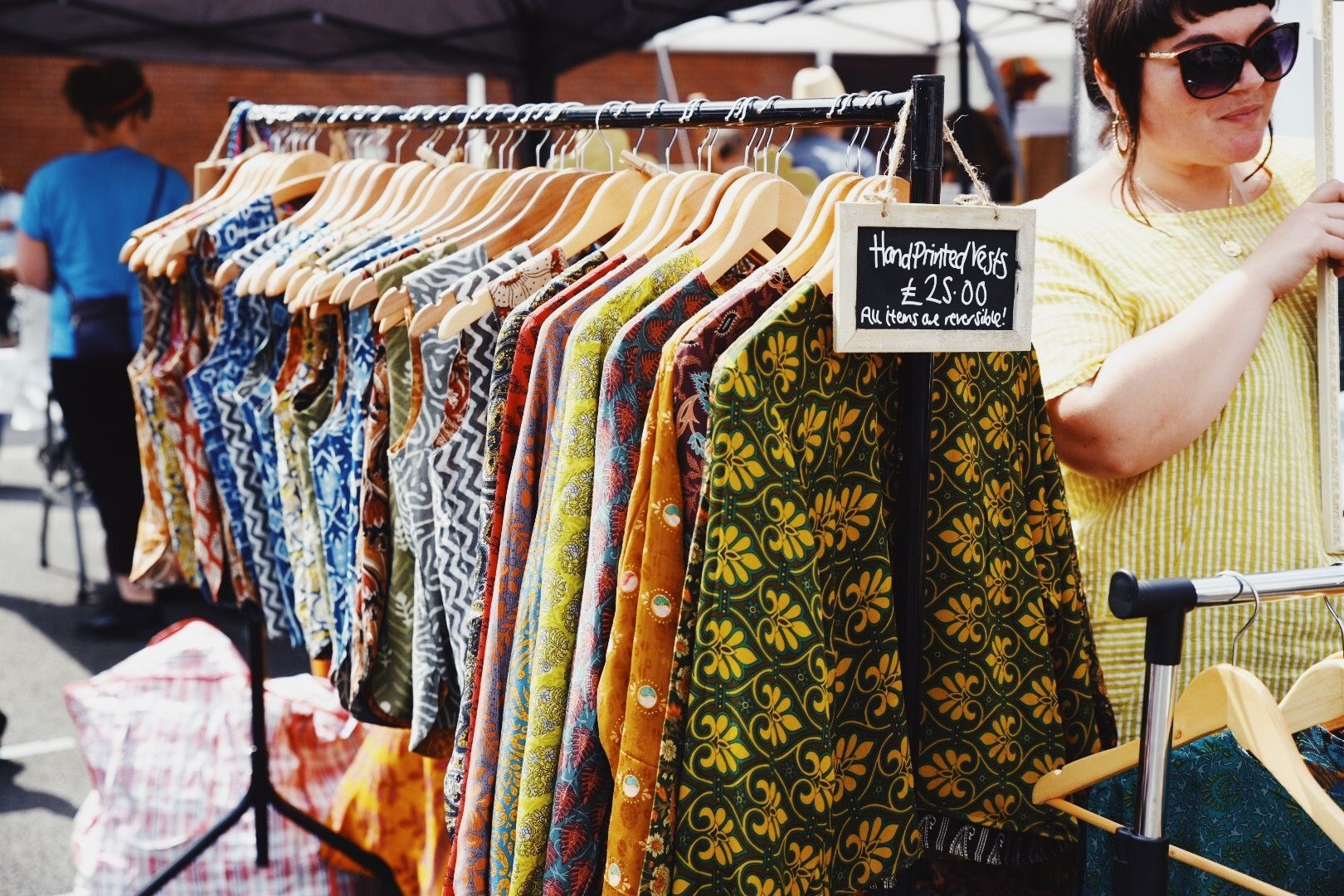
Lalita Kumar, a freelance performer and former duty manager at the Norwich Playhouse, had a tour booked this year that was cancelled because of the pandemic. She booked a stall at the market's opening week to promote her collection of clothes made from Indian fabrics, Lalita's Wardrobe. (Photo credit: Salsabil Morrison)
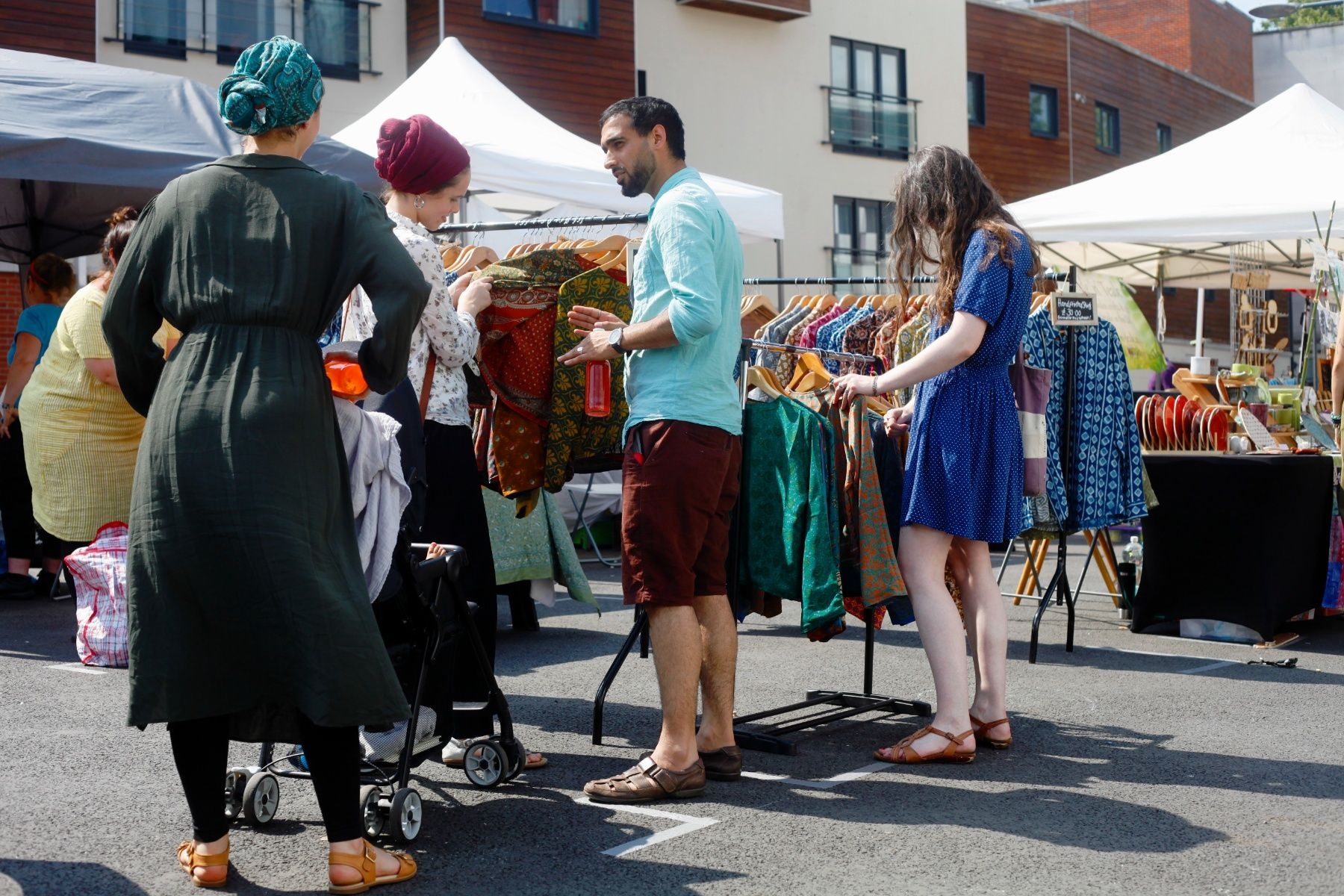
"The kind ethos of giving and supporting small independent business at such a difficult time has been like a flicker of hope," says Kumar, who adds that she is lucky she had been running this project on the side when the pandemic hit. "All of our local seasonal markets have now been cancelled, that's pretty terrifying for small creative businesses like mine," she says. (Photo credit: Tom Gowanlock)
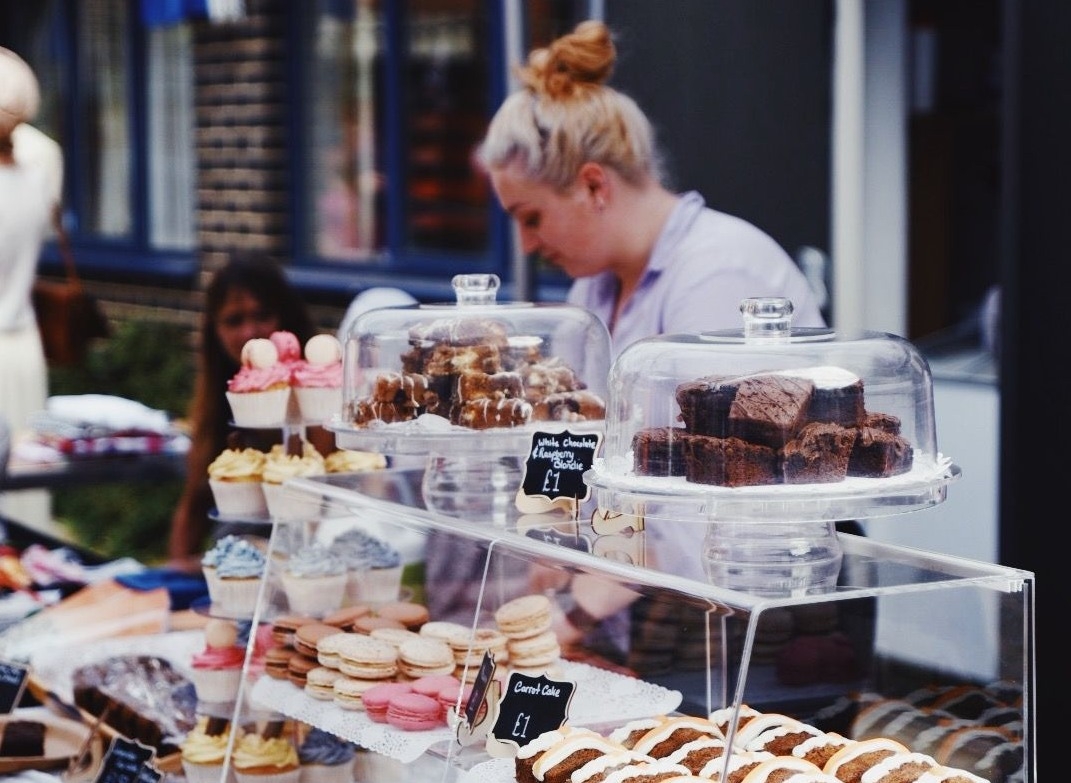
Another former theatre employee, Jaimee Woodhouse, 22, set up Jaimee's Patisserie after she lost her job this year as a stage hand at the Norwich Theatre Royal (which is offering use of its car park space to the market for no fee). "I feel that the market is an amazing opportunity and I am so happy to be a involved in such a diverse event. [It] has given me a platform to promote my small business in difficult times, which I am grateful for," says Woodhouse, whose bakery specialises in home bakes and bespoke cakes.
"I am also glad that Norwich Theatre Royal asked me to get involved and helped me get a spot to sell my cakes and bakes." (Photo credit: Salsabil Morrison)
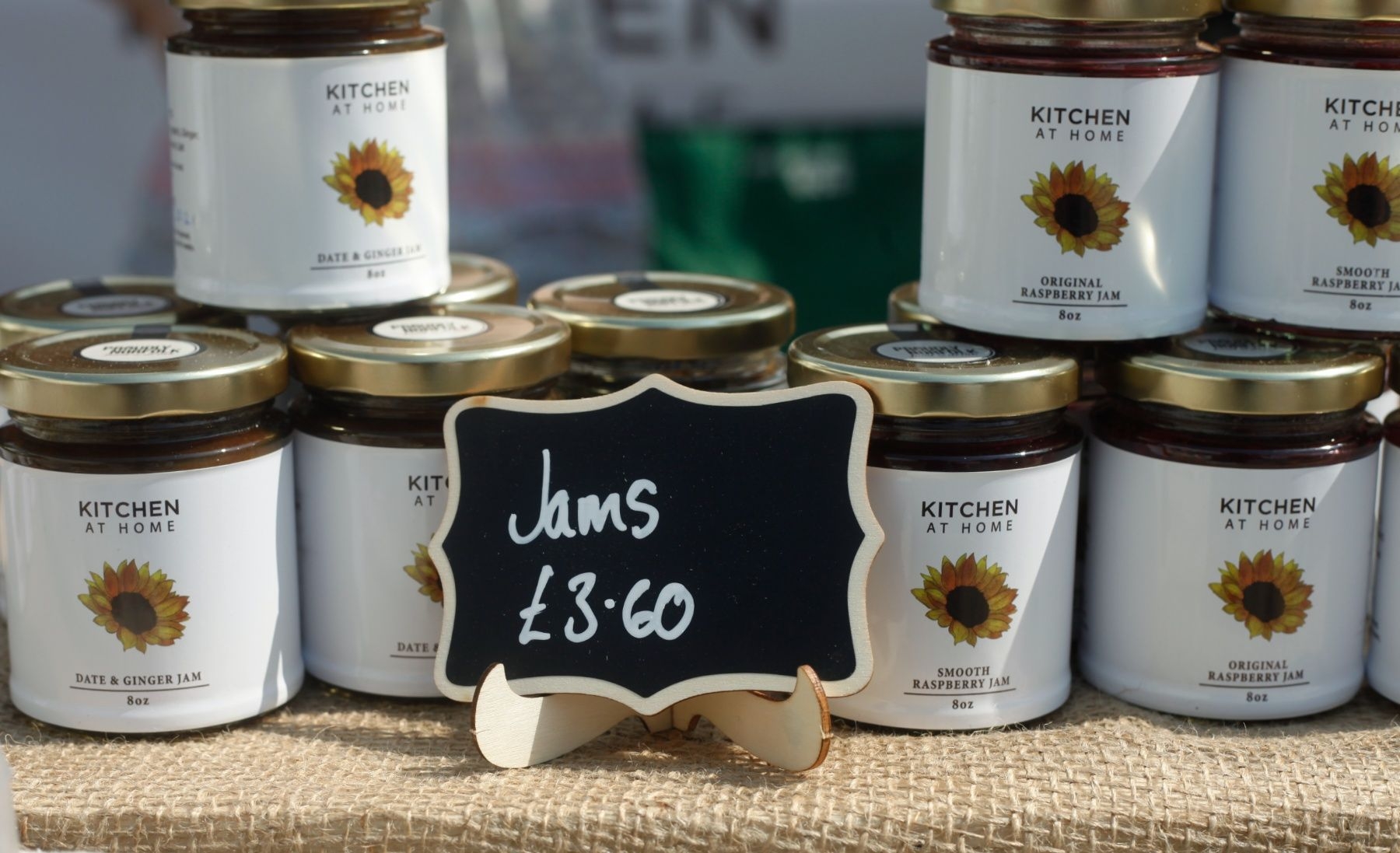
Kitchen at Home, an eco-conscious food shop working with local farmers and producers was a "Covid business" set up by Emily-Jane Webb, a third-year student at the University of East Anglia, after she spotted people's online shopping habits "change for the better" during lockdown. "I saw a lot more posts about becoming more eco conscious... But there was nothing sort of local and using the local crafters and the local producers, and I thought it was just a kind of missed opportunity," Webb, 24, says.
Much like the Norwich Free Market where it had a stall in August, Webb's business prides itself on being a community project first and foremost. "People have used this time to reflect on their lives and make changes in their routines for the better, we are here to support people in that journey," she says. (Photo credit: Tom Gowanlock)
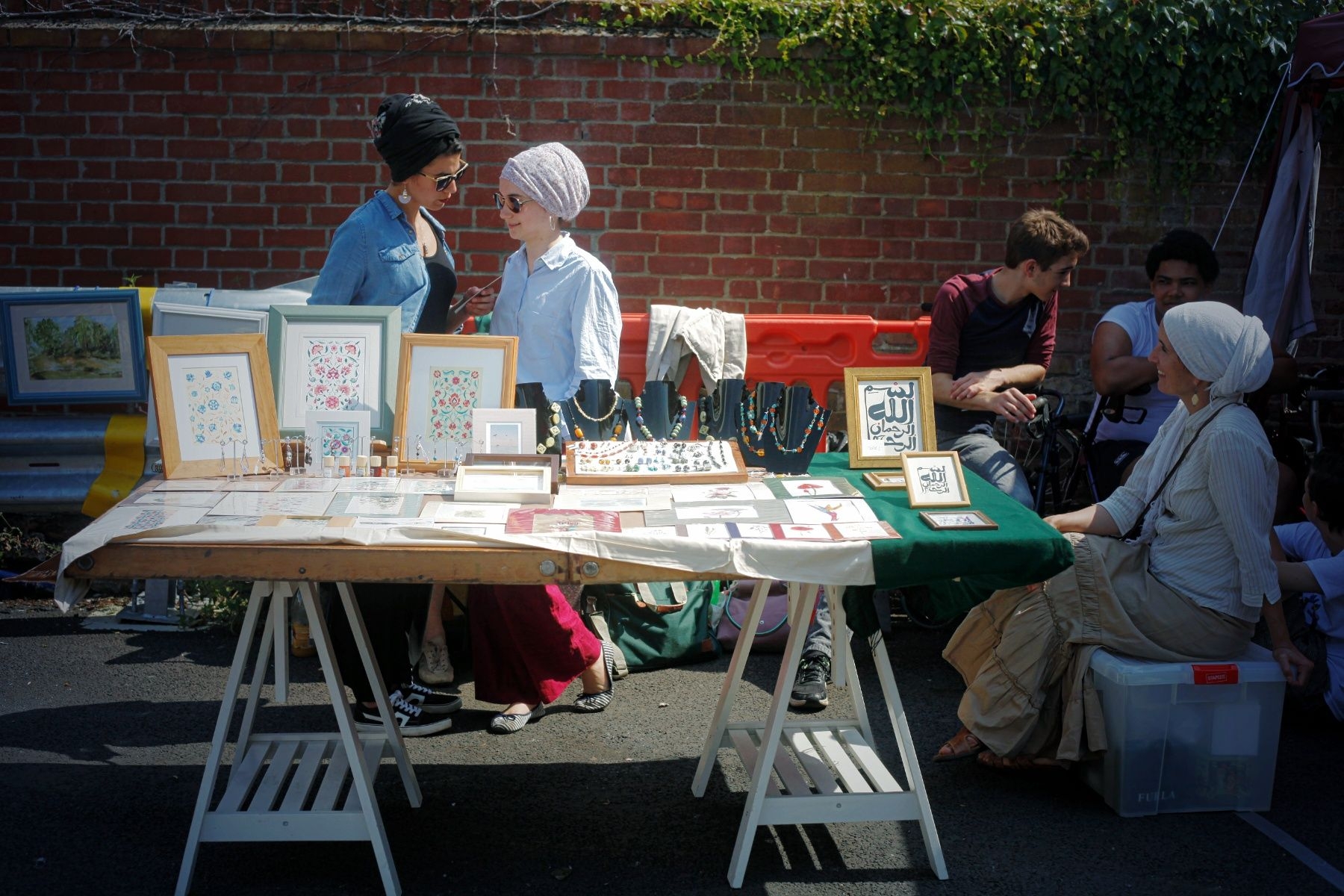
The lack of a participation or rental fee is a key draw for local traders, both new and more established. "By not charging people it means they don't come with an innate anxiety, because you've spent 50, 80, 100 [British pounds] or whatever it is, before you've even started the day," Brandt says. "We have an ancient prophetic tradition," she adds. "We know it works." (Photo credit: Tom Gowanlock)
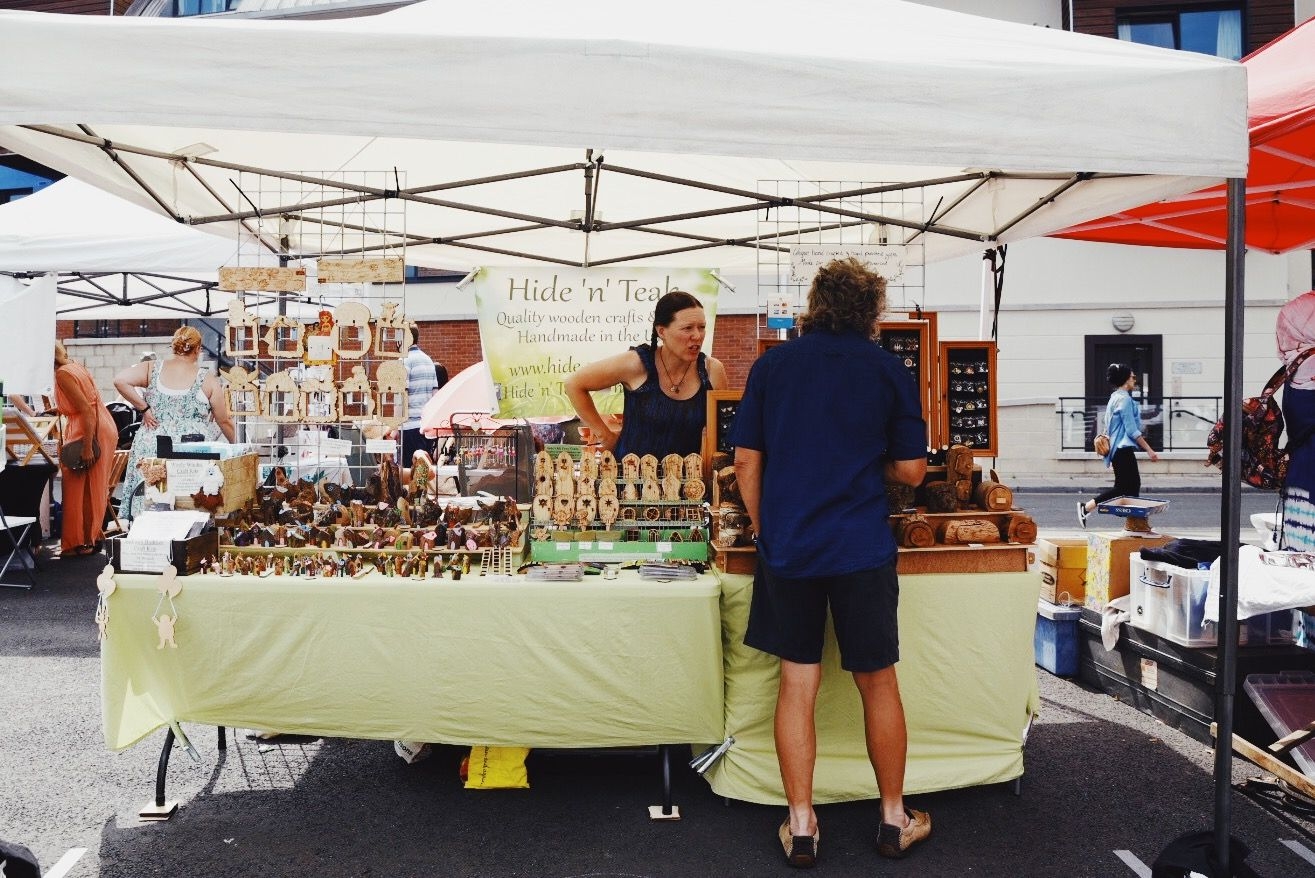
Spots are allocated on a first come first served basis, both at the time of registering, and when it comes to choice of pitch on the day. And although the principles are based on Islamic tradition, the market still operates along the lines of a traditional English market. "When people register, they know that we're doing this on the lines of the Islamic market," Brandt says. But for the visitors and the shoppers they "wouldn't know it's an Islamic market... it's just a market." (Photo credit: Salsabil Morrison)
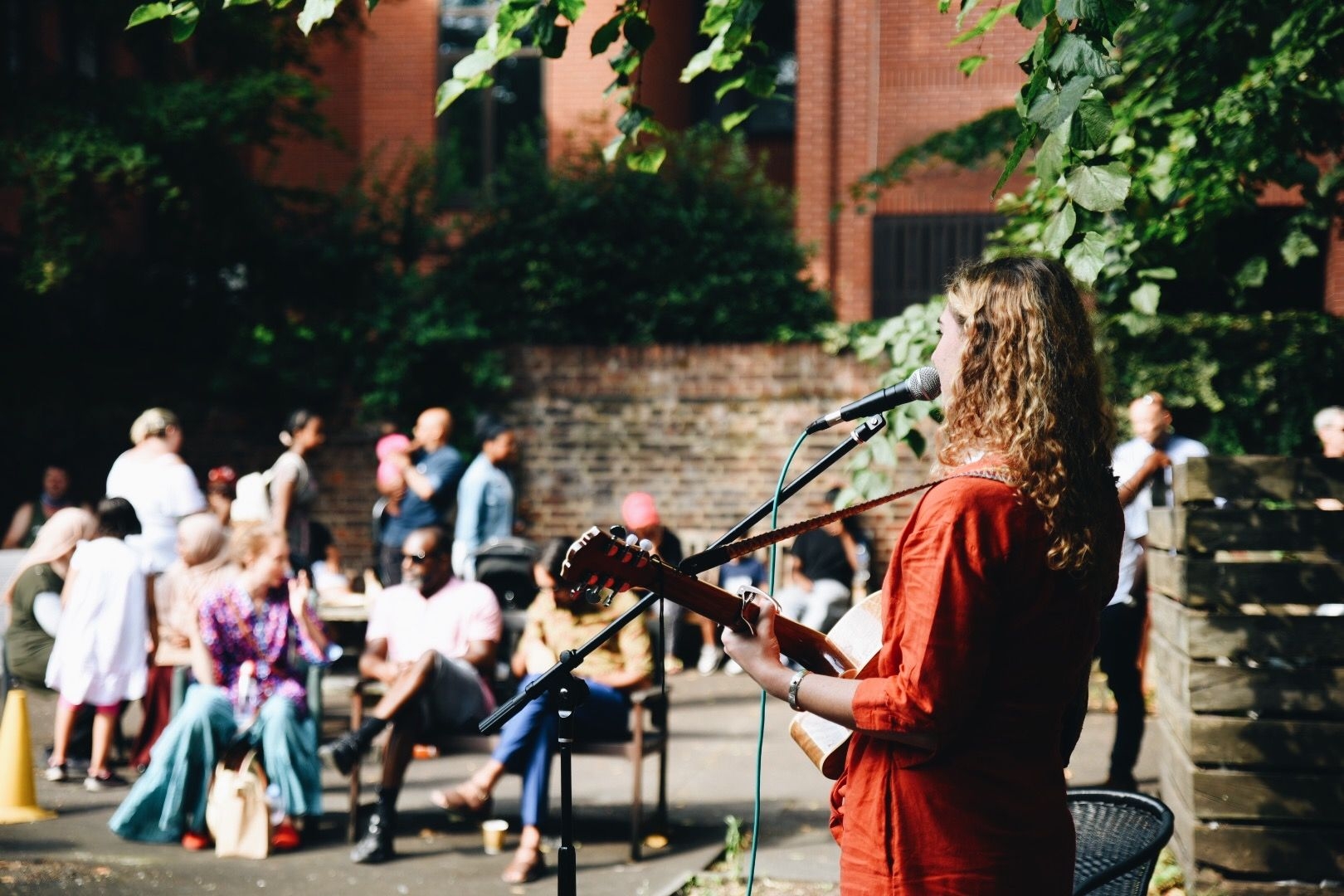
Local artists perform in a connecting courtyard which doubles up as a food court throughout the day-long event. Although the market is small, hemmed into the car park of the local theatre and with less than 50 stalls overall, the atmosphere remained lively. "I loved my impromptu visit today and got some lovely items," one shopper's feedback read. "A worthwhile visit with some talented yet modest artists." (Photo credit: Salsabil Morrison)
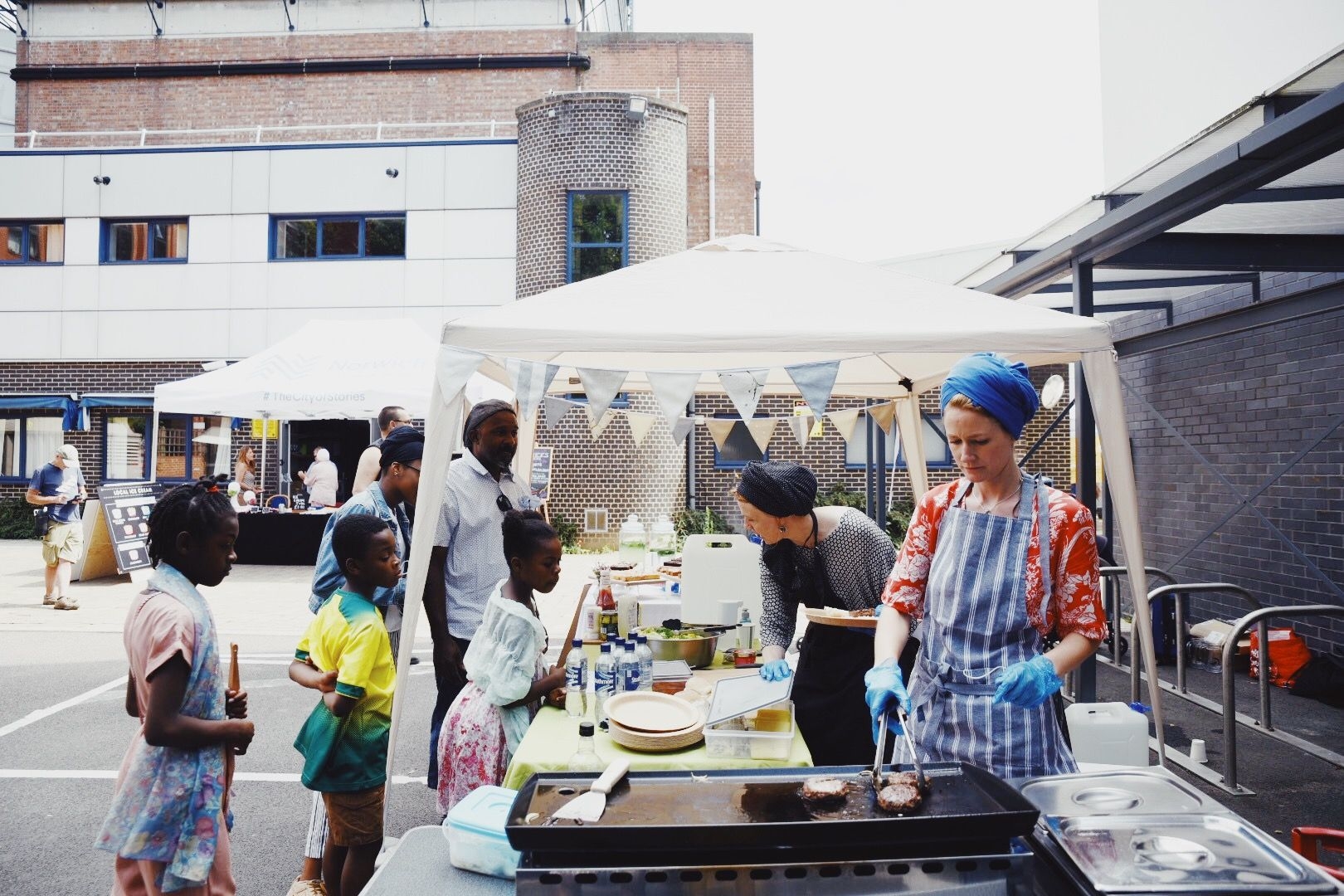
With the real threat of financial bankruptcy looming for high-street retailers following the Covid lockdowns, London-born Sealey says their efforts are inspired by a desire to combat the large companies who benefited from a spike in food hoarding and online shopping. "We're anti supermarkets and Amazon, these large companies that made lots of money through Covid," he says. (Photo credit: Salsabil Morrison)
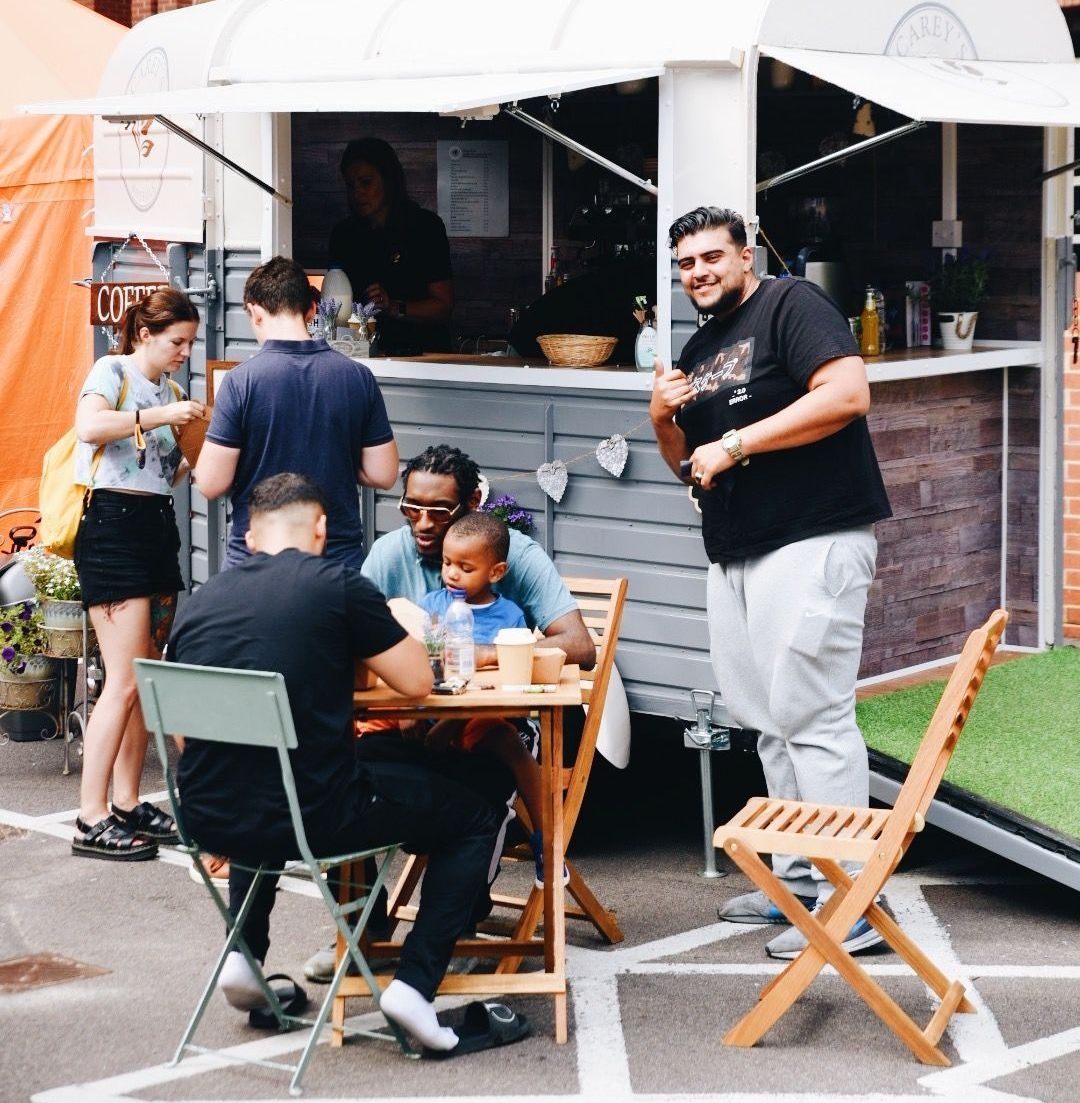
"I know people started growing stuff in their gardens and some hobbies came up," Sealey adds. "I'm hopeful that people will believe more and buy into becoming more local [and] buy from their local butcher, their local farmer's market, and things like that." And the response has been staggering, he says - all stalls for this month's edition of the market were allocated within a minute of its announcement. (Photo credit: Salsabil Morrison)
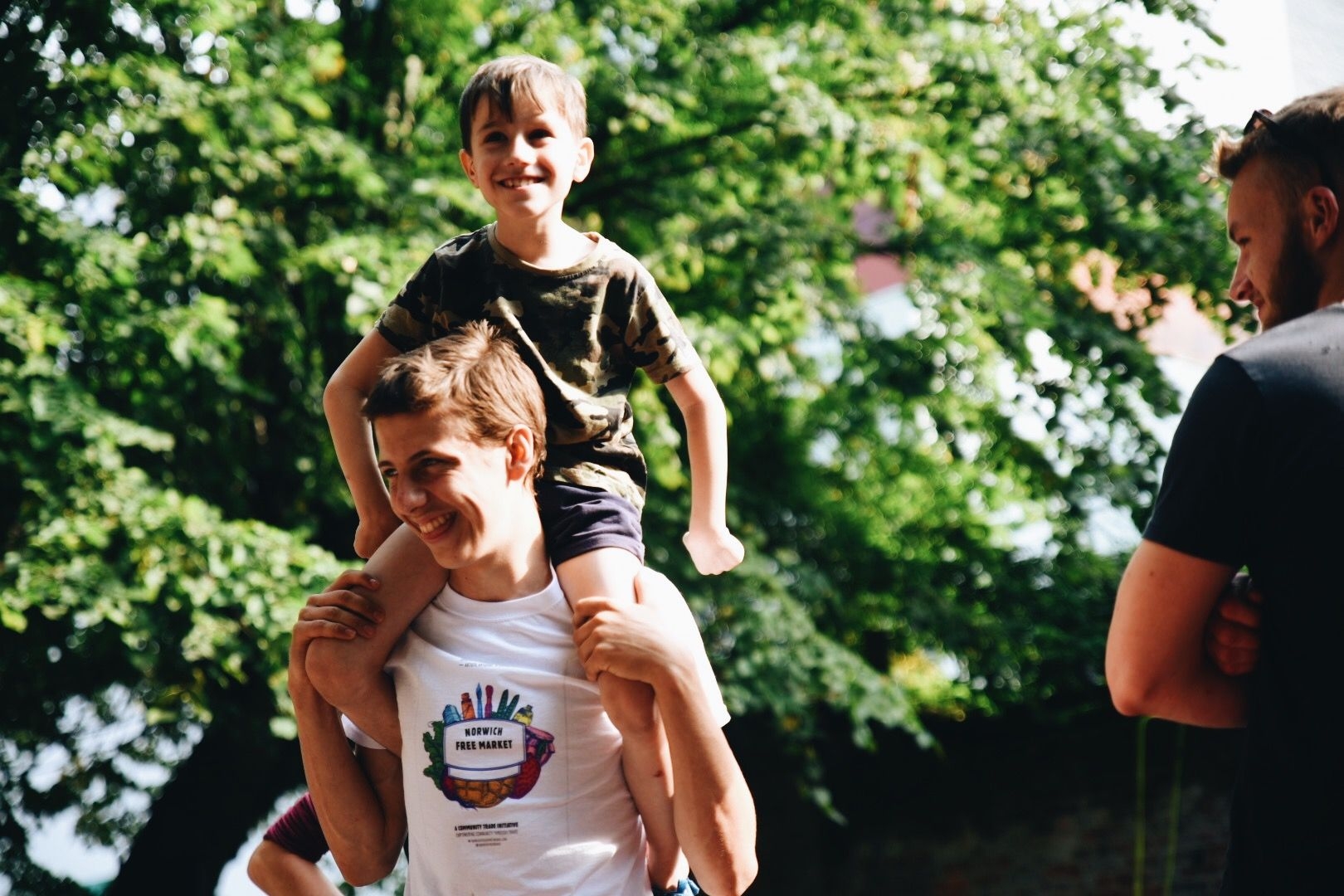
The market has been an opportunity for the Muslim community to make a difference to society as a whole, and "look after everybody", Brandt says, especially at a time when there is so much negativity about Islam. "It's very easy to sit around and, you know, put the world to rights over a cup of coffee," she says. "But I think it's really important that we are serving the people and our communities and doing what we can to benefit people, because otherwise what's it all about?" (Photo credit: Salsabil Morrison)
Middle East Eye delivers independent and unrivalled coverage and analysis of the Middle East, North Africa and beyond. To learn more about republishing this content and the associated fees, please fill out this form. More about MEE can be found here.


